Welcome to Day 22 of the Small Art Big Heart series featuring RainMakers & ChangeMakers - people working to uplift others through innovative and creative educational, skill building, and agriculture focused initiatives in Africa.
This is the first of what I plan to be several art and story cameos that include VIDEO! Video rounds out a person’s character; we take cues from their maneurisms, voice, and facial expressions. Video makes us all the more real to one another. So, please click on the 2-minute video above to enjoy Andre Lutula’s personal introduction.
Teacher and Life-Long Learner
Meet Andre Lutula! Andre’s story has already been covered by my friend
of Sector39 Permaculture over on his Substack publication called Chimanimani. With that in mind, I will keep Andre’s introduction relatively short and cover details gleaned from our Zoom meeting the other day and follow up conversation.Andre Lutula is 34-years old, married, and a father of three children ages 1 1/2, 4 and 10. Separated from his family for nine years after fleeing violence in the Democratic Republic of Congo (DRC), Andre found shelter at Kakuma Refugee Camp in the remote Northwestern region of Kenya in Turkana County.
A teacher by training and a life-long learner, Andre continues to further his education through online courses in business and project management with the University of Maryland, Coursera and attending online networking and permaculture events such as those hosted by Steve Jones. He holds two permaculture design certificates and with a passion and background in pedagogy he is a natural fit for an education-focused initiative.
Andre has all of the hallmarks of a ChangeMaker. He is passionate, energetic, resourceful, and has a big vision. He is a neworker, recognizing that financial and non-financial resources and connections are critical to helping him advance his mission to help community members do more than just survive. But, he is also evidently a doer, having spent the last seven years persistently organizing with his fellow community members to make small strides towards self-sufficiency in the face of hardship. Andre also is that special sort of person who believes their primary purpose in life is to serve others and make the world a better place. He is not only an advocate for change but a realizer of change.
Social Action Center for Vulnerable Individuals
In 2017, Andre founded the organizaion called Social Action Center for Vulnerable Individuals (SACVI) together with other community members to address the educational, food insecurity and income generation challenges faced in Kakuma. They decided that they would try to organize themselves to reduce the insecurities they face. They had the conviction that they were stronger together than on their own.
SACVI is a membership organization led by 12 people. Andre serves as the Director. Each member leader has a role with the organization with a backup structure in place to ensure there is a deep bench of leadership, coordination, and program delivery. Together they pool their resources to deliver education and trainings to community members.
For instance, when he saw that there were 200 children in each school classroom at Kakuma, he and other parents banded together to hold after-school educational classes for children ages 4 to 7 years old to ensure that they learned how to read and write. Now SACVI provides after-school instruction at a space provided by a church to 78 children in various subjects such as mathematics, reading and history. The younger ones are engaged in art and learning how to write their names.
SACVI members also provide training in small kitchen gardening. This is critical given that the food rations provided by UNHCR are insufficient to feed a family and job opportunities not to mention income generation opportunities are severely limited. Andre who has two certificates in permaculture design teaches community members permaculture principles and other modes of growing food in small areas such as container gardening to help people feed themselves.
Multi-Lingual, Multi-Cultural Programming
Unlike other Community Based Organizations (CBOs) in communities that are monolingual, at Kakuma there are over 250,000 refugees from multiple nationalities with different languages, religions, and even preferred foods and cuisines. SACV’Is leadership reflects this diversity.
Andre explained to me how the mixture of cultures and languages both challenge and enrich their work at Kakuma. Refugees from the DCR, South Sudan, and Burundi, for example, all speak different languages and prefer different foods. This impacts communication during trainings as well as decisions on the types of vegetables to grow together and to use during kitchen gardening trainings.
As Andre described to me, in order to have effective trainings, teachers with linguistic and cultural fluency that matches that of the students is key. Andre and his colleagues’ intuiton that children and people in general have better educational outcomes if they are taught by someone who shares their language is backed up by a study published in 2020 by the Joint Data Center on Forced Displacement. The study indicated that literacy outcomes for refugee children in lower primary schools at Kakuma were higher if the instruction was provided in the student’s primary language. It also suggested that teachers could be trained in “translanguaging” practices that ‘enable them to capitalize on languages shared with students.’
Self-Help & Resiliency
Mutual self-help initiatives amongst refugees and immigrants all around the world is a common survival practice. Banding together and pooling resources, working cooperatively towards a common goal, is a common sense solution to a situation where resource deprivation is the norm. It is no wonder then that Andre and his colleagues saw opportunity in organizing themselves.
While they have little by way of resources on their own, when they pool resources together they are able to procure the materials they need such as tools, seeds, or pens and books.
The Future…
The past holds unspeakable traumas and tragedies for many refugees, Andre included. The present is full of challenges and limitations. Naturally, members of SACVI and their participants must focus on the present. But, what of the future? I asked Andre what his goal is for the future, now 9 years away from living in DRC with his family.
“Moving out of Kakuma is a goal for many of us here, including myself. While organizations provide essential support, many individuals aspire to eventually leave the camp for better opportunities. If I have the chance, I would consider moving to a place where I can continue my education or find stable work. However, the timing and feasibility depend on various factors including support from organizations and personal circumstances. It is something I hope to work towards in the future.”
Andre’s ChangeMakers
Andre identified two ChangeMakers: Steve Jones and Morgan Brown.
of Sector39 is a renowned permaculture expert whose innovative approaches to sustainable agriculture and ecological restoration have transformed many communities. His dedication to teaching and his ability to turn degraded land into productive ecosystems have been a major influence on my work. Steve's achievements include developing numerous permaculture projects worldwide and authoring several influential books on permaculture principles and practices. His work has shown me the immense potential of permaculture to improve food security and restore environmental health.Morgan Brown is a community organizer and advocate for social justice who has made significant strides in empowering marginalized communities. Morgan's achievements include leading successful grassroots campaigns that have brought about substantial policy changes and improved living conditions for vulnerable populations. Her ability to mobilize people and create lasting change through community engagement and advocacy has been a guiding light for me. Morgan's work underscores the importance of giving a voice to the underrepresented and fostering community resilience.
Where in the World is Andre?
Andre lives in the Kakuma Refugee Camp in Kenya. According to the UNHCR website, “Kakuma Refugee Camp is located in the North-western region of Kenya. The camp was established in 1992 following the arrival of the “Lost Boys of Sudan”. During that year, large groups of Ethiopian refugees fled their country following the fall of the Ethiopian government. Somalia had also experienced high insecurity and civil strife causing people to flee.” The Camp is the second largest refugee camp in Kenya and is the temporary home of approximately 250,000 people. Just under 10% of all refugees living in Kenya are Congolese with the vast majority being Somalian or South Sudanese.


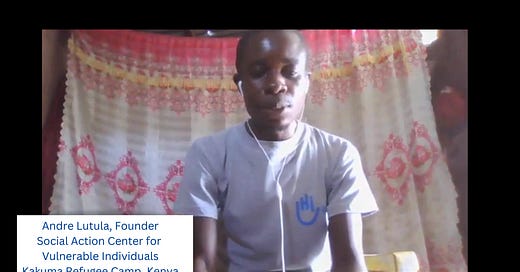


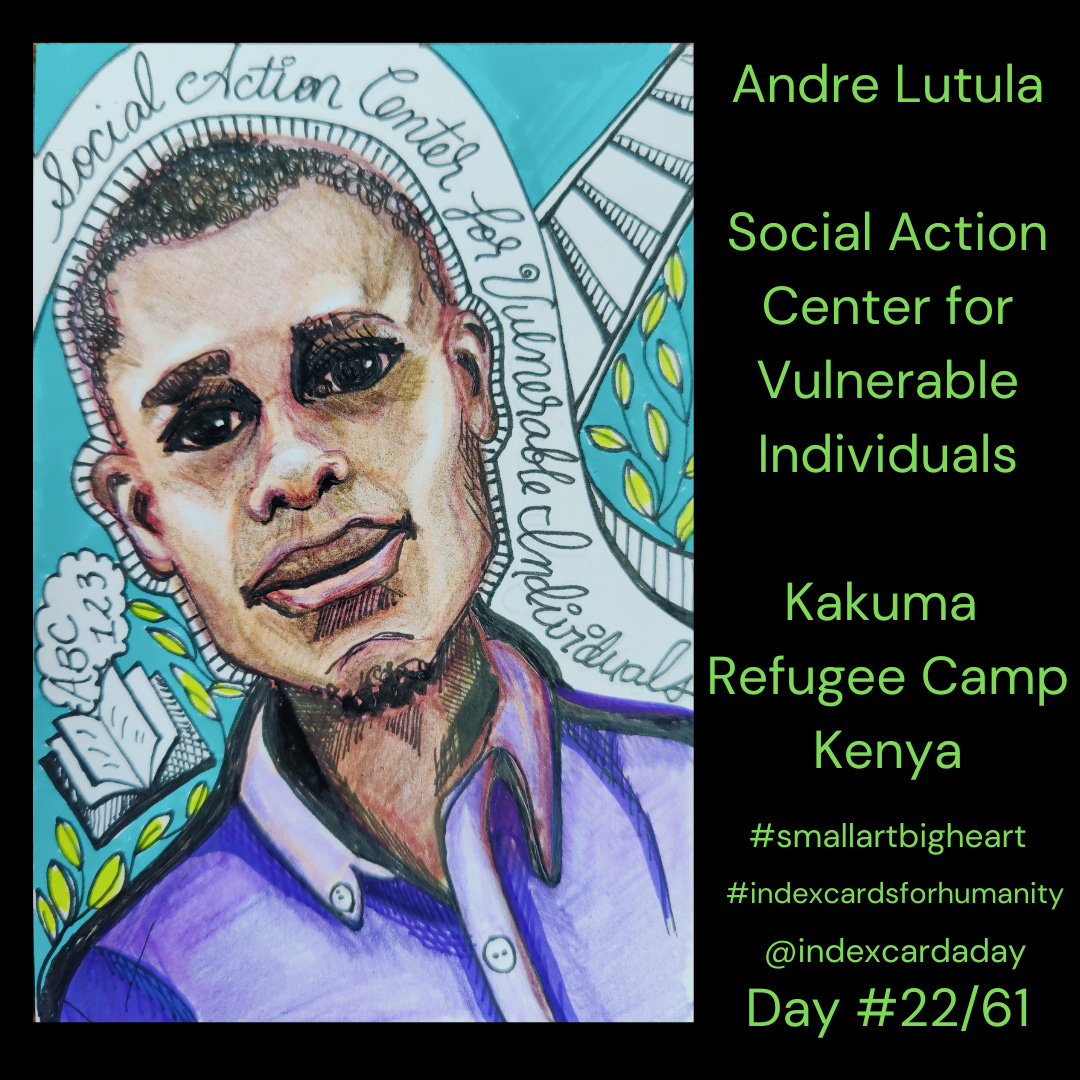
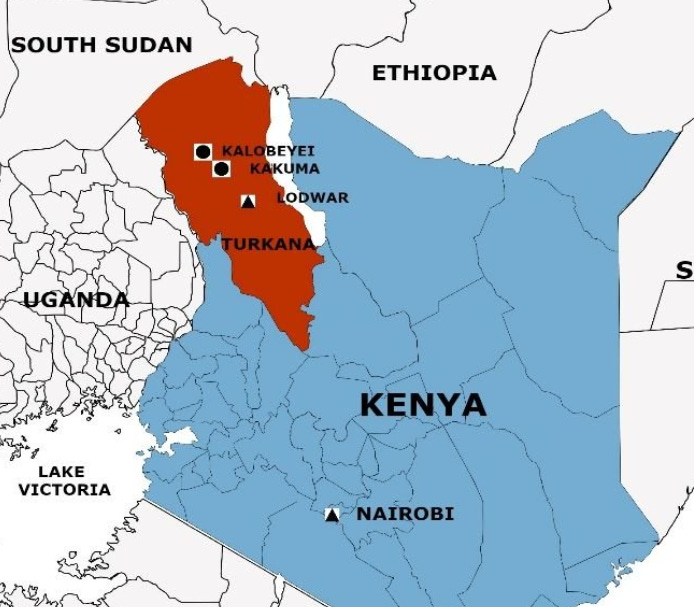
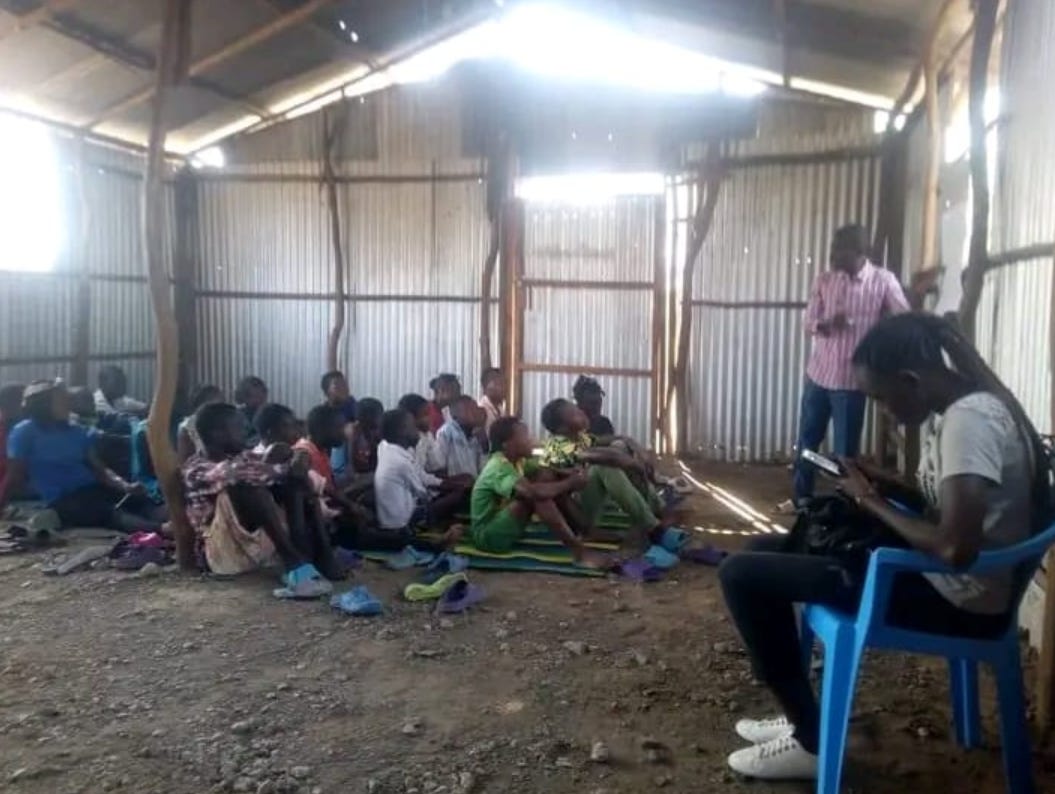
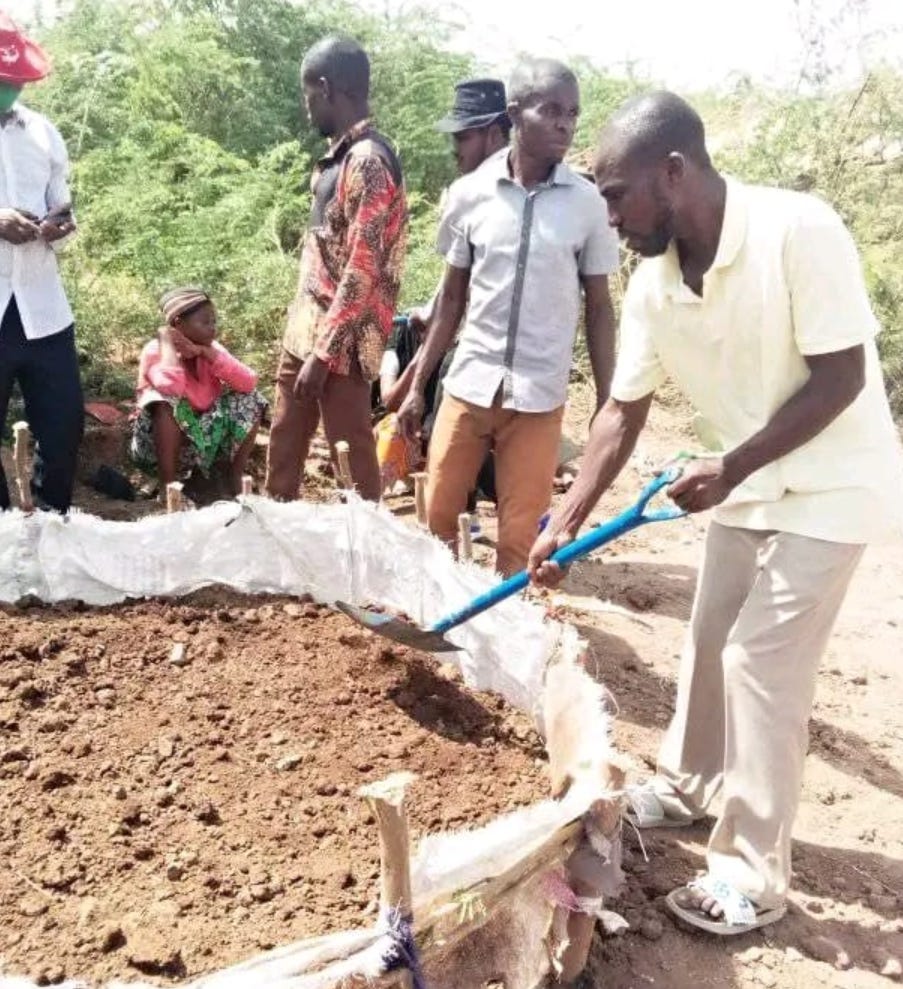
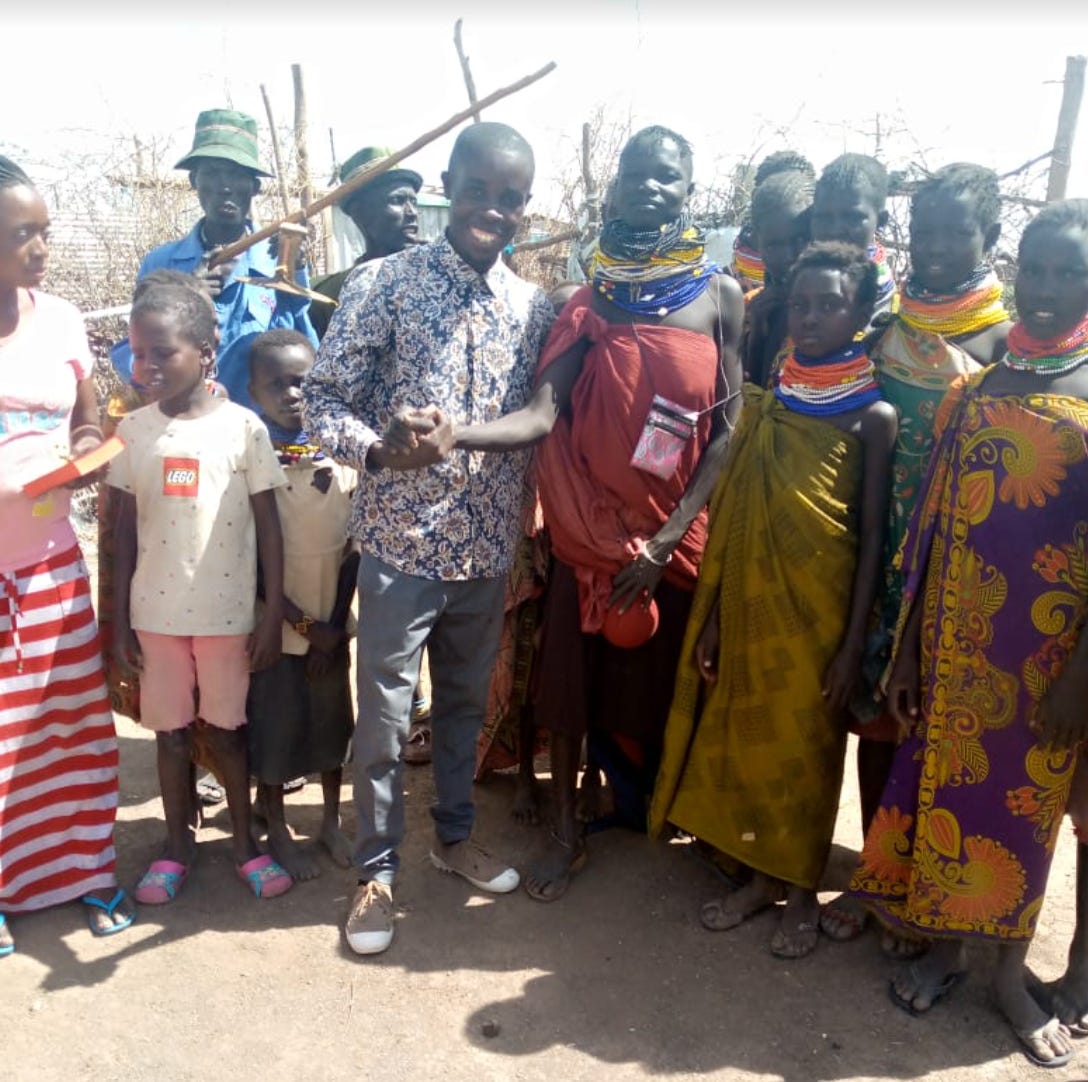
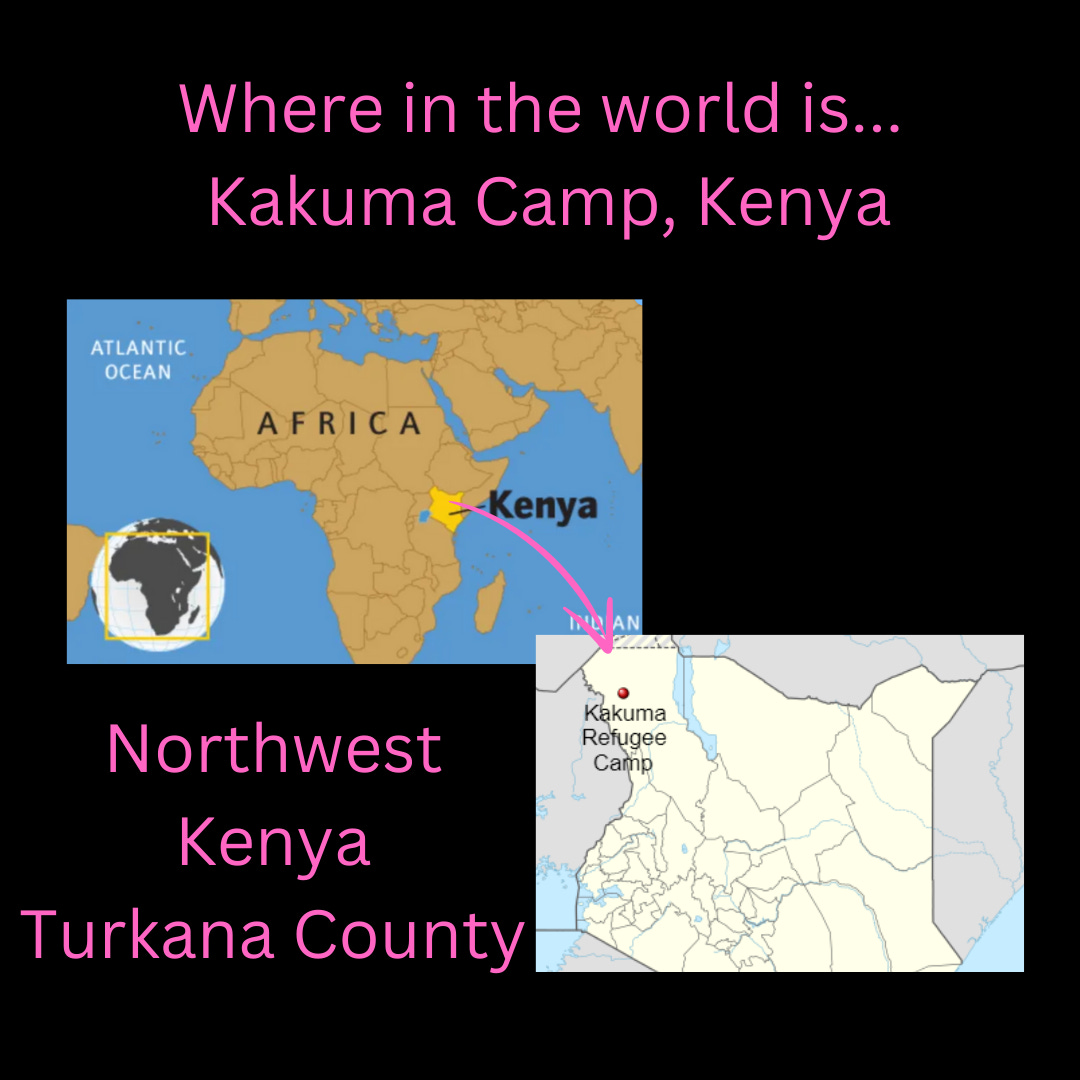

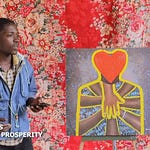
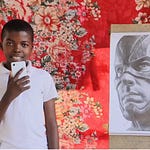
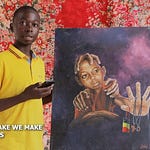
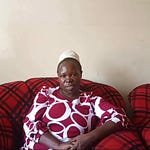
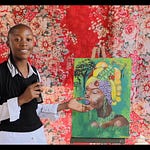

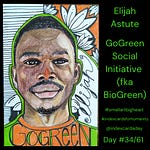

Share this post